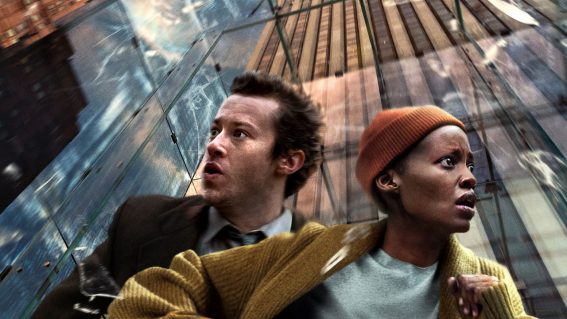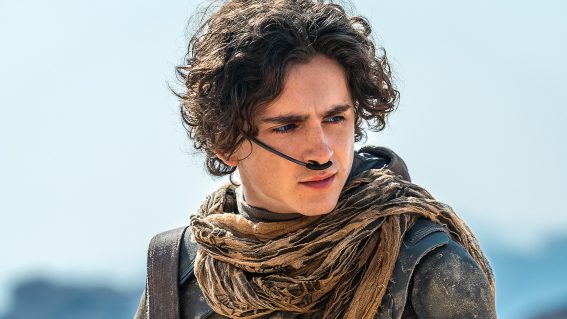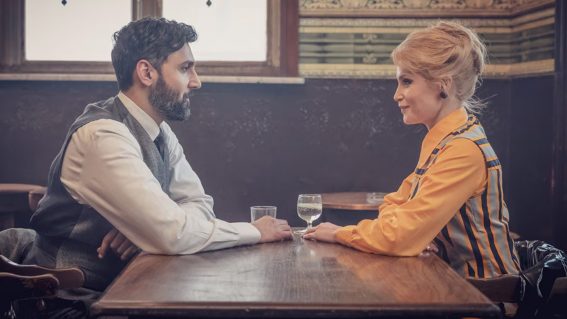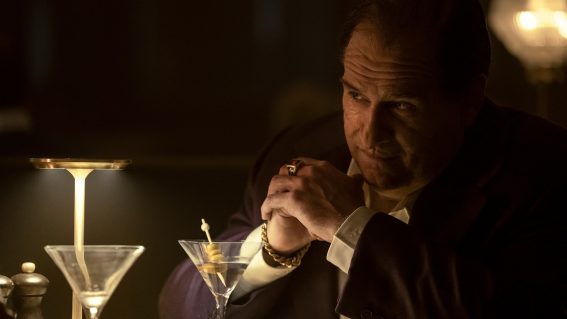Euphoria may be the most shocking (and shockingly real) teen show of the decade
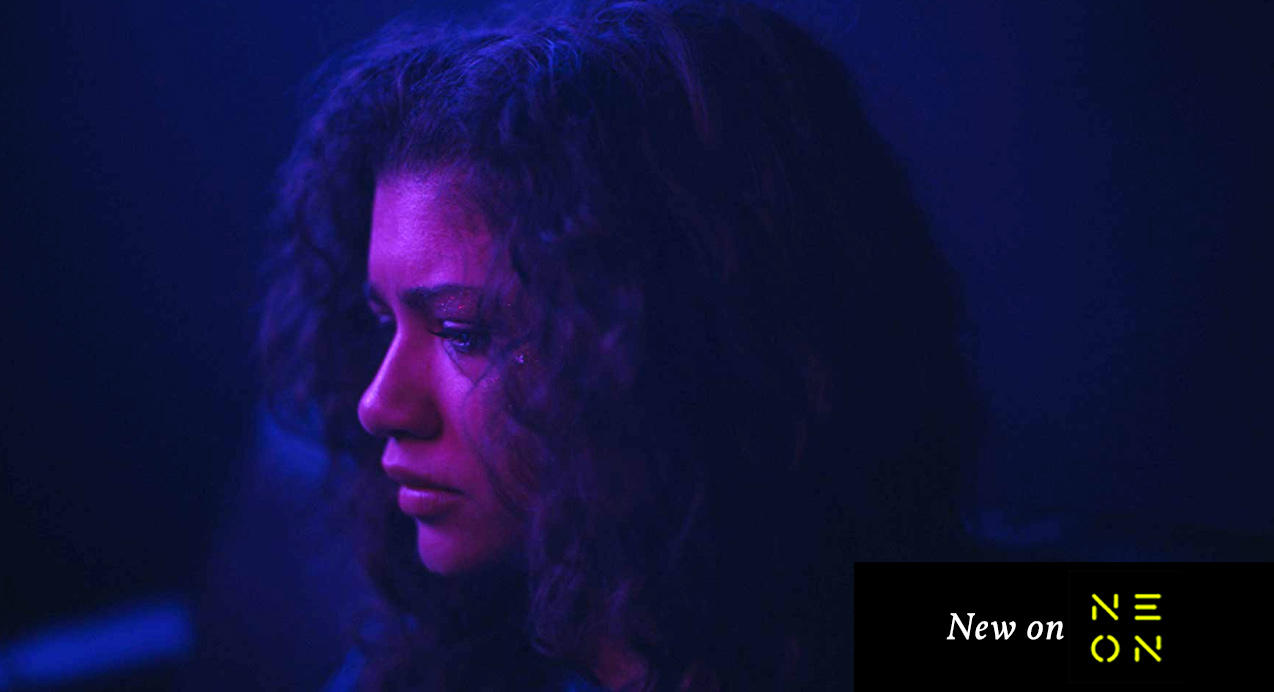
![]()
With HBO’s impactful teen drama Euphoria now available express weekly on NEON, Katie Parker takes a look at what might be the most shocking—and shockingly real—teen show of the decade.
Since the dawn of time, it seems teen television drama has nearly always been a form of fantasy: down-and-out youths taken in by the wealthy to live in fabulous pool houses; mothers and daughters eating nauseating amounts of pizza as they openly mock their small town neighbours; perfectly autotuned highschoolers joining elaborate, all-consuming choirs.
Aside from the occasional after school special PSA, historically these shows are rarely interested in accurately reflecting the experience of real adolescence—instead offering glossy glimpses of alternate realities in which coming of age is an angsty yet sexy affair, sometimes involving thrilling murder mysteries.
From time to time though, teen television drama takes a detour down a road less traveled—one that refuses to bypass all the everyday messiness, confusion and chaos that, for teenagers (and their horrified parents) will be all too familiar.
With controversy already swirling and talk of it being the most visceral and explicit teen show to ever hit TV screens, HBO’s Euphoria looks set to be the latest—and perhaps most extreme—to take up the mantle of the shocking (and shockingly real) teen show of the decade.
Written and created by Sam Levinson (best known for 2018’s unhinged teen flick Assassination Nation), produced by Drake (!) and based on an Israeli show of the same name, Euphoria stars Disney channel starlet turned Spider-Man’s girlfriend Zendaya as Rue, a 17-year-old with a serious drug problem who, having overdosed on pills, has just emerged from a summer spent in a rehab facility.
But while she has satisfied her doctors and convinced her desperate mother of her sobriety, Rue has no intention of staying clean—and no sooner has she arrived home that she is once again searching for the numb, empty feeling that fuels her addiction which, it turns out, is not particularly hard to find.
Deeply troubled yet wryly knowing, Rue is the heart of the story and also narrates it—guiding the audience through the sad, beautiful, scary world she and her peers inhabit with eerily disaffected calm.
There’s Kat (Barbie Ferreira), awkward and inexperienced, adopting false bravado to catch up to her peers; Nate (Jacob Elordi), a repressed, misogynistic jock with anger issues; Lexi (Maude Apatow), Rue’s better behaved childhood friend who supplies her with clean urine for drug tests; and most notably, Jules (Hunter Schafer), a young trans woman new to town and already engaged in a disturbing tryst with a married man, who quickly forms a kinship with the equally troubled Rue.
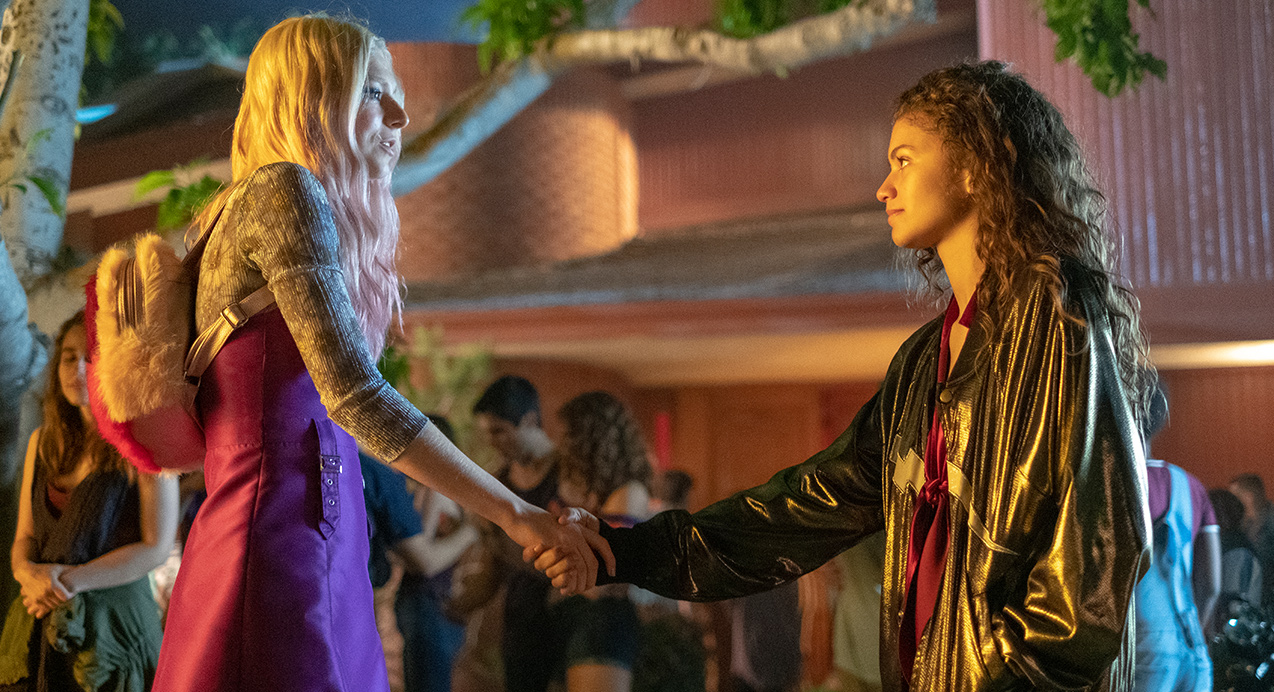
Before it had even aired, Euphoria was already the subject of internet hubbub, rumours of the horrors contained within circulating wildly through the online hot-take machine; statutory rape, drug use, non-consensual choking, self-harm, copious nudity (you may have heard that the second episode features around 30 penises—it’s true!), all shown in explicit, hyperreal detail.
Even Zendaya issued a warning to her followers ahead of its US debut: “There are scenes that are graphic, hard to watch, and could be triggering,” she wrote.
“Please only watch if you can handle it. Do what is best for you. I will still love you and feel your support. Love, Daya.”
For a number of reasons, teen drama has long been a place where boundaries are pushed perhaps more than anywhere else on television—and as such have a tendency to act as lightning rods for controversy.
Dawson’s Creek saw prime-time’s first male-on-male kiss; Beverly Hills 90210 tried to tackle the AIDS crisis; Gossip Girl got Hilary Duff in a threesome; most recently 13 Reasons Why caused widespread hubub over fears that it would incite teens to suicide.
Yet while many shows have enjoyed showcasing ‘hot-topics’, so to speak, Euphoria’s true predecessor—and the show to which it has been most widely compared—is of course the British drama Skins which, since it first aired in 2007, remains legendary for its exploration of taboo subject matter.
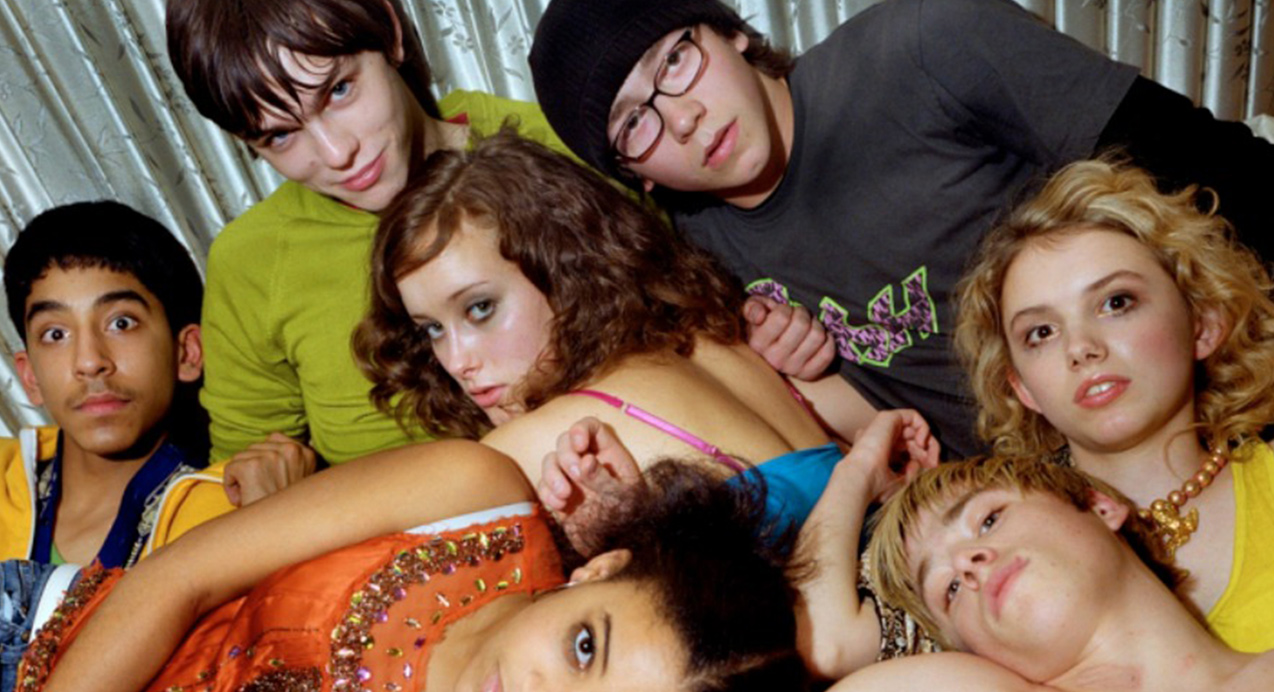
Skins
Following the lives of a group of disparate, disenfranchised teens getting into all kinds of (often drug fuelled) trouble in suburban Bristol, the show was ground-breaking not only by virtue of making The OC look like Sesame Street.
Unflinchingly real and stunningly non-judgmental in its depiction of such things as sex, substance abuse, mental illness, eating disorders and murder, amongst others, the show garnered instant success, acclaim—and many, many complaints.
Yet as much as concerned parents may have hated Skins, there was a reason it was so popular: With a writers room of under 25s and a team of ‘teen consultants’, the show offered young people a rare, honest and most of all serious reflection of their adolescent experience.
It may have taken over a decade but for the first time since, Euphoria seems poised to do the same for the internet era.
Born just three days after 9/11, Rue’s experience as a member of Generation Z began in her infancy, rocked to sleep as her horrified parents watched footage of the Twin Towers collapsing over and over again.
Raised with screens and school shooting drills, socialised through text chat and given sex education by pornography, the teens of Euphoria have not merely built a new world for themselves from the ground up—they’ve built a new code of ethics, one influenced heavily by the growing sense that there won’t actually be a future to grow up in.
“The world’s coming to an end”, Rue tells us, “and I haven’t even graduated high school yet”.
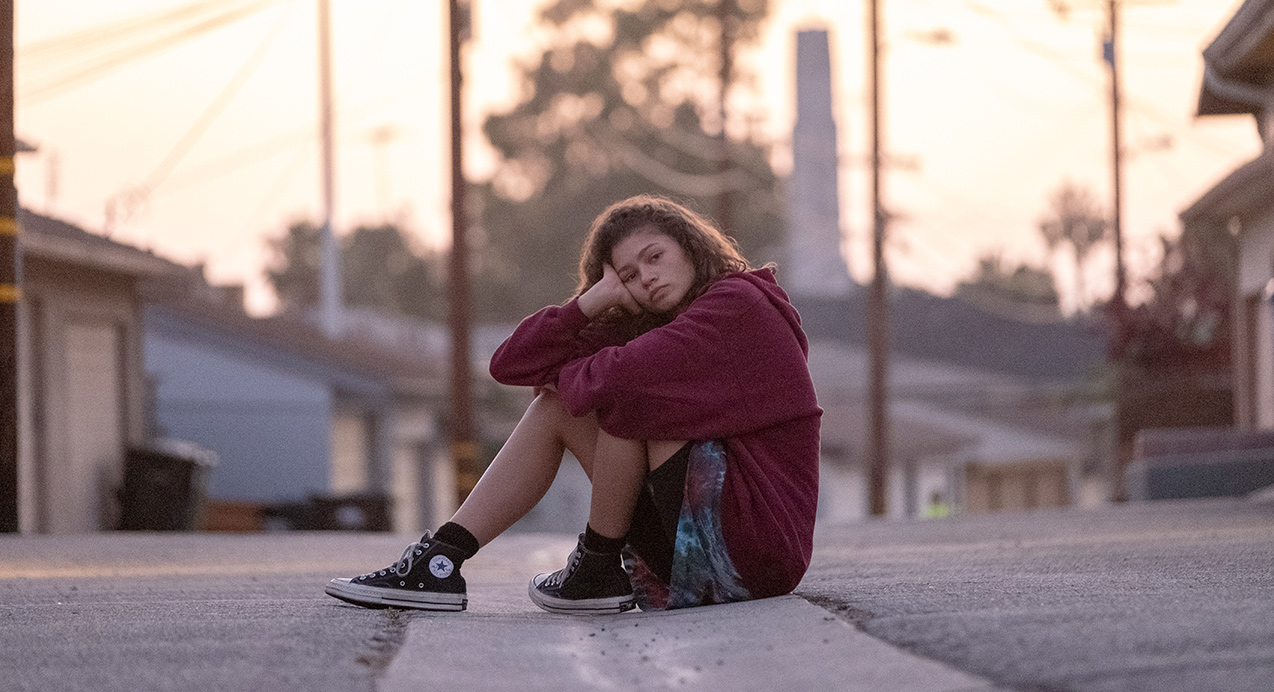
Yet as much as the teens in Euphoria may appear terrifyingly unfazed by their debaucherous—and often dangerous—pursuits, so too are we made painstakingly aware of just how vulnerable they really are.
With the knife-edge tension of a thriller, each of the young ensemble seem at one point or another to be on the verge of crossing the threshold towards something very dangerous. Some, such as Jules, in her gut wrenching hotel liaison with her dating-app date ‘dominant daddy’, already have.
Were it not for Levinson’s clear and genuine affection and compassion for his characters, it would all be very hard going. Thankfully though, for all its disturbing content, Euphoria’s goal is not actually to fuck up its viewers.
Led gently but firmly by Rue’s world-weary voice-over, the show instead takes great care to allow the viewer’s shock to develop into understanding; never judging its characters and being sure to give the viewer the necessary context to allow a generous reading of even the more upsetting scenes.
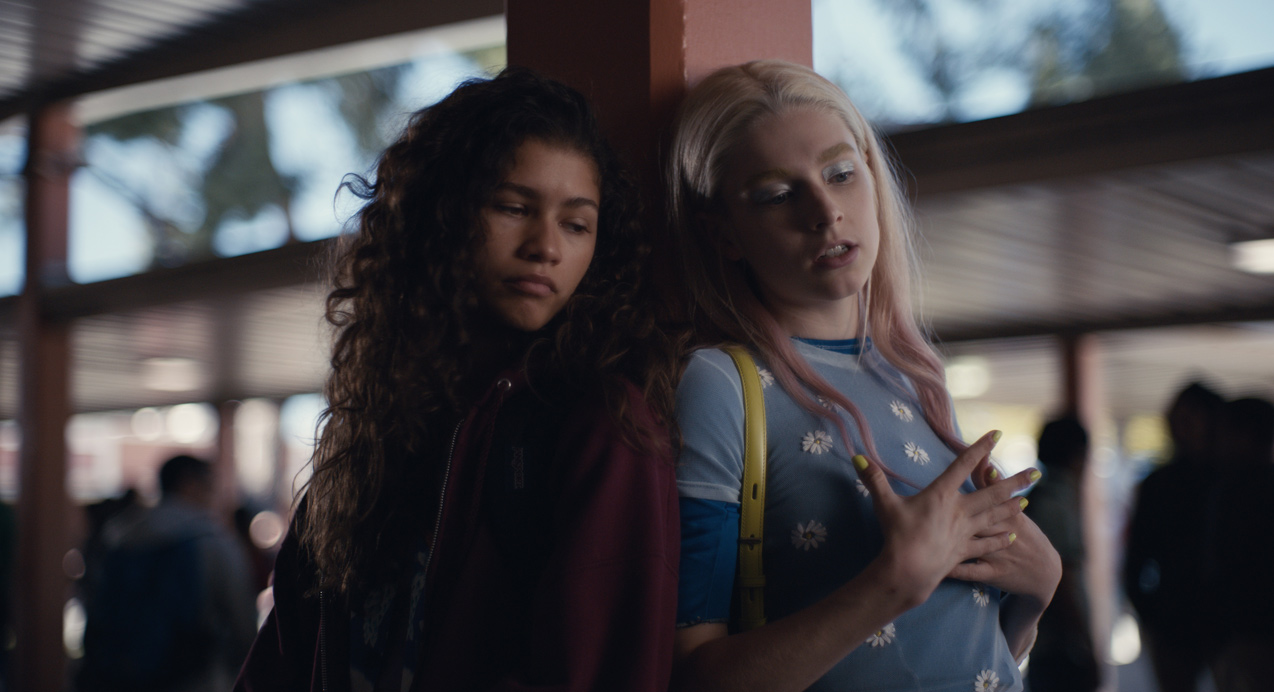
“I know your generation relied on flowers and father’s permission,” she tells us, as a room full of boys giggle callously at one of their classmate’s private photos, “but it’s 2019, and unless you’re Amish, nudes are the currency of love. So stop shaming us.”
Even the camera is empathetic: swirling and stumbling with Rue’s addled highs; freeze framing to offer warning at a potentially upsetting juncture; directing its unflinching gaze at moments other shows would cut away from in a gesture that feels not so much exploitative as it does stubbornly protective.
Over a decade since it first debuted, Skins nowadays almost feels like something of a period piece.
Where those teens went out to raves, wandered the streets, got into all manner of real-world shenanigans, Euphoria’s generation are more likely to spend their evenings gazing at glowing screens—desperately searching for validation and connection with whatever is on the other side.
Euphoria—which Levinson says closely mirrors his own adolescent struggle with addiction—may not be the future parents want. But with care, compassion and heart it offers a sympathetic guiding light through a world that, even to its inhabitants, is scary, alien—and very, very real.





